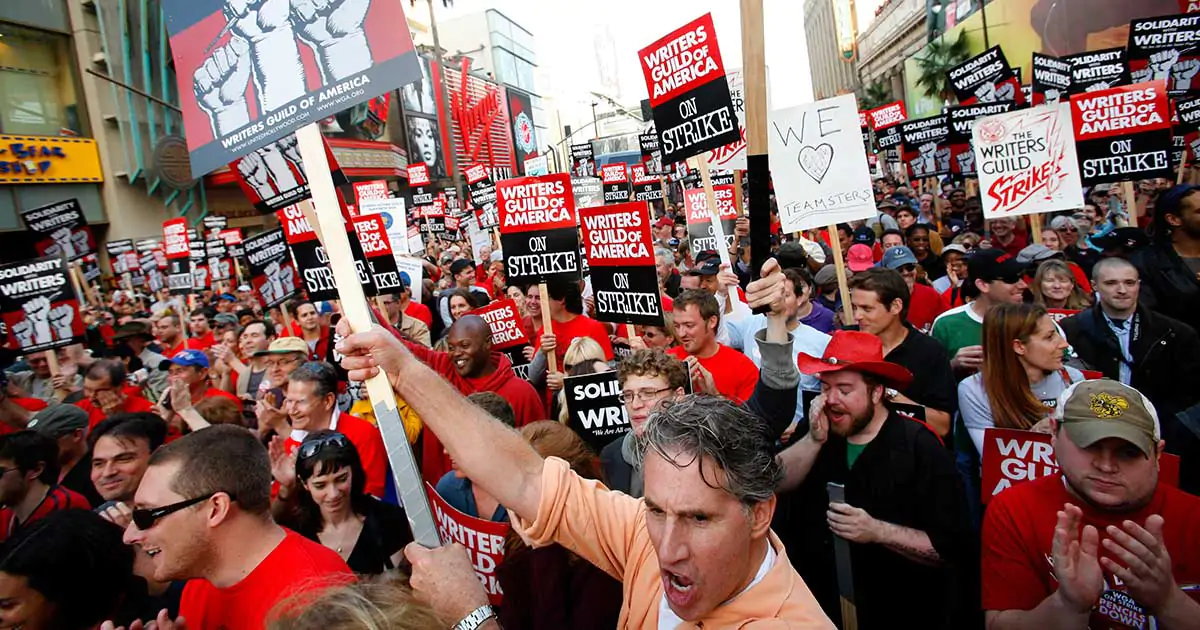Has the next season of your favorite show been delayed or cancelled? This may be because of the Writers’ Strike, forcing productions to pause their performances. After 6 weeks of failed negotiations with the Alliance of Motion Picture and Television Producers (AMPTP), The Writers Guild of America (WGA) a labor union representing screenplay writers, decided to go on strike.
The WGA, a union formed by writers for the purpose of improving pay, benefits, working conditions, and job security, represents over 11,000 film writers. By participating in this strike, they were demanding higher and stable pay structures, fairer contracts, and greater compensation.
As streaming companies such Netflix, Hulu, and Paramount begin to rise in popularity, so does their effect on the writing community. On cable TV, writers are commonly paid by the number of episodes aired, while royalties earn them more money after the airing of a show. However, because streaming companies are exclusive and paid for, screenwriters are earning much less than when a show is broadcasted.
Television and film writers are also concerned about artificial intelligence (A.I.). In our society, A.I. can be accessed and used for anything from writing a poem in your English class to an entire screenplay with proper format, descriptions, and dialogue. While on the strike, writers demanded job protection in fear of machines displacing writers and other artists in the future. They’re concerned that one day, the writing world may not be in their hands, but technology’s. Writers don’t want to stop writing, nor are they looking for trouble. They are simply trying to look after themselves and each other.
Their main goal was to force the AMPTP to negotiate a deal in hopes of reaching a mutual agreement with terms beneficial for both parties. In the end, on September 27th, 2023, the writers declared the conclusion of their strike after an official tentative agreement was reached between the WGA and AMPTP. This includes major gains in payment, size of show staffs and control of artificial intelligence in scripts. To the relief to screenwriters, David Goodman, co-chair of the WGA’s negotiating committee says, “The deal is exceptional in that it is something that will protect writers, not just now, but in the future.”







